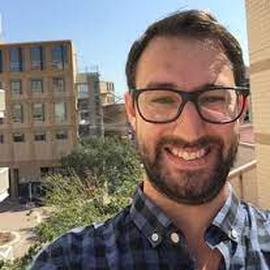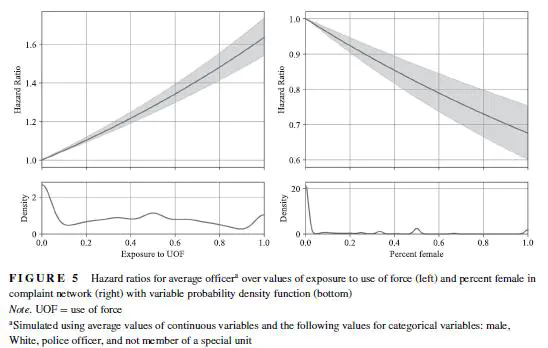Abstract
In this study, we investigate how a police officer’s exposure to peers accused of misconduct shapes his or her involvement in excessive use of force. By drawing from 8,642 Chicago police officers involved in multiple complaints, we reconstruct police misconduct ego-networks using complaint records. Our results show that officer involvement in excessive use of force complaints is predicted by having a greater proportion of co-accused with a history of such behaviors. Our findings indicate officers’ peers may serve as social conduits through which misconduct may be learned and transmitted. Isolating officers that engage in improver use of force, at least until problematic behaviors are addressed, seems to be critical to reducing police misconduct and department-wide citizen complaints. Future studies should be aimed at investigating how social networks shape police misconduct and the ways network analysis might be used to diffuse intervention strategies within departments
Publication
Criminology & Public Policy, 18, 675-704

Principal Investigator
Dr. Marie Ouellet’s research focuses on delinquent groups, including how they emerge and evolve, and how networks structure this process. She is currently leading a longitudinal study on police networks to better understand the informal structure of policing, including organizational cohesion and fragmentation within departments, and the consequences of these network structures on the diffusion of behaviors and attitudes. Ouellet’s work has been published in Criminology, Criminology & Public Policy, Journal of Research in Crime and Delinquency, and Justice Quarterly.

Assistant Professor
Dr. Hashimi’s research centers on issues pertaining to policing and policy, peer influence and crime, and violence prevention efforts. Specifically, Dr. Hashimi employs social network analysis and various other research designs to uncover patterns of criminal and non-criminal behaviors that relate to co-offending, police misconduct, police use of force, and gang involvement.

Assistant Professor
Dr. Gravel’s research focuses on the application of social network analysis in many areas of criminology and criminal justice research, most notably in the study of street gangs, co-offending, gun violence, and police misconduct.
